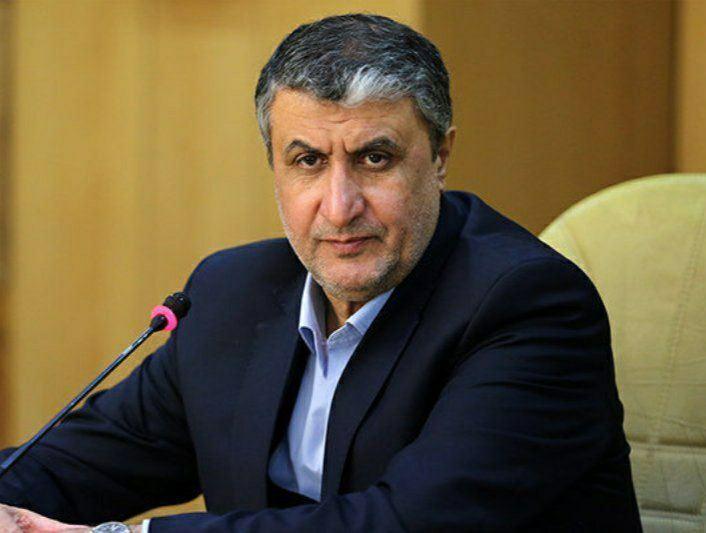
Iran To Fulfill Its Obligations At Minimal Level Unless Sanctions Lifted, Says AEOI Chief
He spoke to reporters after the meeting of the Cabinet of Iran in Tehran on January 17.
Eslami stated that the opposite parties require Iran to fully adhere to the JCPOA, despite the fact that they do not fulfill their obligations. This is contrary to the strategic action plan approved by the Iranian Parliament. The Atomic Energy Organization of Iran is taking steps within the framework of the strategic action plan approved by the parliament.
In late 2020, the Iranian parliament decided to implement a strategic plan to tackle the sanctions, citing the non-implementation of the Joint Comprehensive Plan of Action (JCPOA) signed between Iran and six countries and the imposition of sanctions on Iran.
According to the decision of the Iranian parliament, as of February 23, Iran suspended the implementation of additional steps and an additional protocol provided for in the nuclear deal. As a result, the control mechanism of the IAEA decreased by 20–30 percent.
Vice President also added that the International Atomic Energy Agency (IAEA) reports that Iran is not adhering to the provisions of the JCPOA. Iran, on the other hand, argues that the sanctions imposed against the country within the framework of both the JCPOA and the Strategic Action Plan have not been lifted, and takes steps within the framework of Articles 26 and 36 of the plan.
According to Article 26 of the nuclear deal, if one party fails to adhere to its obligations, the other party may suspend its obligations in whole or in part.
According to Article 36 of the nuclear deal, if Iran believes that the P5+1 group has not fulfilled its obligations under the nuclear agreement, it can raise this issue in the joint commission.
Iran's nuclear program was the subject of the JCPOA, a deal signed by Iran and the P5+1 group (US, Russia, China, UK, France, and Germany) on January 16, 2016. However, on May 8, 2018, the US withdrew from the JCPOA and imposed new sanctions on Iran as of November 2018, affecting its oil exports and freezing its assets abroad. More than 700 banks, companies, and individuals were also targeted by the sanctions.
Iran has been trying to resume talks with the other parties on its nuclear issue and revive the JCPOA. The main goals of Iran are to end the sanctions imposed by the US and Western countries, access funds frozen abroad, and resume its crude oil exports.
Iran claims that its nuclear program is only for peaceful purposes, but the IAEA has reported that Iran has increased its highly enriched uranium by 27 percent in the last three months and now has 4,745 kilograms of enriched uranium. This is 15 times more than the amount allowed for Iran in the JCPOA.

Legal Disclaimer:
MENAFN provides the
information “as is” without warranty of any kind. We do not accept
any responsibility or liability for the accuracy, content, images,
videos, licenses, completeness, legality, or reliability of the information
contained in this article. If you have any complaints or copyright
issues related to this article, kindly contact the provider above.
Most popular stories
Market Research

- Bitmex Reports Over 185% Liquidity Growth Following AWS Tokyo Migration
- Tokenfi And New To The Street Announce National Media Partnership To Reach 219M+ Households
- Chartis Research And Metrika Release Comprehensive Framework For Managing Digital Asset Risk
- Xdata Group Named Among The Top 66 Saas Innovators In Techround's 2025 List
- Cregis At TOKEN2049 Singapore 2025: Unlocking The Next Frontier Of Adoption
- On-Chain Cultural Assets: Decoding City Protocol's IP Capital Market



















Comments
No comment